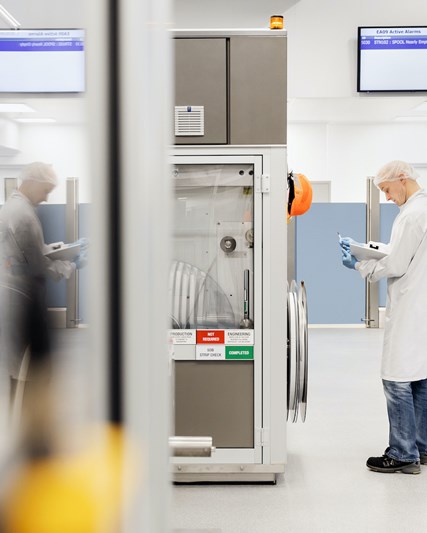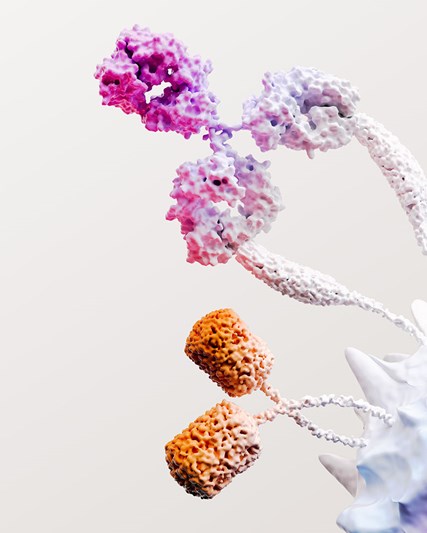Issued: London, UK
For media and investors only
Brazil and Thailand become first malaria-endemic countries to launch new single-dose radical cure medicine to prevent the relapse of Plasmodium vivax malaria
- Launch of single-dose tafenoquine, co-administered with chloroquine, is another step closer to global elimination of malaria
- The development and launch of this new treatment is the result of a partnership between GSK and Medicines for Malaria Venture
GSK plc (LSE/NYSE: GSK) and Medicines for Malaria Venture (MMV) today announce that the first single-dose medicine for the prevention of relapse of Plasmodium vivax (P. vivax) malaria – tafenoquine, co-administered with chloroquine for radical cure, has now been launched in both Thailand and Brazil, in support of malaria elimination efforts.
P. vivax is the dominant malaria parasite in most countries outside of sub-Saharan Africa1. It is characterised by clinical relapses, with patients repeatedly falling sick unless the latent liver-stage infection is treated. This takes a considerable physical, economic and social toll on patients and communities, perpetuating cycles of poverty. In some cases, relapses can lead to severe malaria and death. Relapses also increase the disease burden and the potential for onward transmission, ultimately impeding global efforts to eliminate malaria.
Tafenoquine is an 8-aminoquinoline, antimalarial drug targeting the liver-stage of P. vivax malaria. When used in combination with chloroquine for the blood-stage infection, tafenoquine provides what is known as radical cure: the treatment of both the blood- and liver-stages of the disease. Tafenoquine, like all 8-aminoquinolines, has the potential to cause acute haemolytic anaemia in people with glucose-6-phosphate dehydrogenase (G6PD) deficiency, therefore a G6PD test must be performed before prescribing.
The Ministries of Health in both Thailand and Brazil sponsored feasibility studies on the routine use of tafenoquine after point-of-care G6PD testing within their public health systems, with the support of MMV. Evidence from these real-world studies has informed their decisions to introduce these anti-malarial tools in their drive to help eliminate malaria.
Thomas Breuer, Chief Global Health Officer, GSK said: “Today’s news underscores GSK’s long-standing commitment to malaria and we are proud that tafenoquine, co-administered with chloroquine, the first radical cure medicine for P. vivax malaria is now launched in both Brazil and Thailand, taking us another step closer to our shared goal of eliminating malaria. Working together with MMV and PATH through the Partnership for Vivax Elimination (PAVE) to optimize this new treatment option has been fundamental to countries being able to introduce this new tool.”
Dr Marcus Lacerda, Tropical Medicine Foundation Dr. Heitor Vieira Dourado (FMT-HVD) and Principal Investigator for the Tafenoquine Rollout STudy (TRuST), said: “The launch of tafenoquine in Brazil marks a significant step forward in our country’s mission to eliminate malaria by 2035. We recognize the unique challenges faced by vulnerable communities, including Indigenous populations, who are disproportionately affected by malaria. This treatment option helps to address these challenges head-on and we are determined to ensure that it reaches those who need it the most.”
In response to the ongoing public health emergency within the Yanomami Special Indigenous Health District (DSEI), where P. vivax malaria accounts for almost seventy percent of all malaria cases, the government of Brazil accelerated the introduction of tafenoquine in March 2024. The roll out of this new testing and treatment option has now begun within the wider public health system (SUS).
In Thailand, reported cases of malaria have increased significantly in recent years, more than doubling between 2021 and 20222. The region bordering Myanmar accounts for most of these additional cases, where displaced populations from the neighbouring country can more easily access healthcare. This has increased the demand for malaria diagnosis and treatment resources in Thailand2 and the roll-out of tafenoquine will have significant impact.
Dr Martin Fitchet, CEO of MMV said: “Seeing this medicine get into the hands of patients who need it is a cause for celebration. This demonstrates real leadership by the governments of Brazil and Thailand in bringing innovation to accelerate the elimination of malaria, MMV is proud to have collaborated with GSK and PATH on the development of this important medicine.”
Approvals for tafenoquine have been granted in the US, Australia, Brazil, Ethiopia, Guyana, Peru, Thailand, Colombia and the Philippines, and the drug is undergoing marketing authorisation evaluation in a number of other countries where P. vivax is endemic. Submissions have included evidence on the safety and efficacy; real world feasibility; a qualitative study on patient and health worker perceptions of G6PD testing and single-dose tafenoquine; a cost-effectiveness analysis and a budget impact analysis.
About Tafenoquine
Tafenoquine is an 8-aminoquinoline derivative with activity against all stages of the P. vivax lifecycle, including hypnozoites. It was first synthesised by scientists at the Walter Reed Army Institute of Research in 1978. GSK’s legacy in the research and development of tafenoquine as a potential medicine for malaria commenced over 20 years ago. In 2008, GSK entered into a collaboration with the not-for-profit drug research partnership, MMV, to develop tafenoquine as an anti-relapse medicine for patients infected with P. vivax. The tafenoquine clinical programme is part of GSK’s global health programme aimed at improving healthcare for vulnerable populations. The STANDARD G6PD test was developed in collaboration between SD Biosensor and PATH. The handheld device provides a measure of a patient’s G6PD enzyme activity levels in two minutes based on a drop of blood from a finger-prick.
Important safety information
Tafenoquine can cause hemolytic anaemia in patients with G6PD deficiency. The most common side effects are difficulty sleeping, headache, dizziness, nausea and vomiting. Allergic hypersensitivity reactions can occur after taking the drug. Please refer to the Consumer Medicine Information (CMI) summary for important dosage, administration, and safety information available at this link: kozenis-cmi-au.pdf (gsk.com)
About Plasmodium vivax malaria
The Plasmodium parasite is a complex organism with a lifecycle spanning both humans and mosquitoes. After an infected mosquito bite, the P. vivax parasite infects the blood and causes an acute malaria episode. It also has the ability to lie dormant in the liver (in a form known as hypnozoite) from where it periodically reactivates to cause relapses of P. vivax malaria. Hence, a single P. vivax infection can give rise to multiple episodes of malaria, in the absence of a new mosquito bite. These relapses can occur weeks, months or even years after the initial infection. The dormant liver forms of the parasite cannot be readily treated with most anti-malarial treatments active against the blood-stage parasite. The current treatment (primaquine) for the dormant liver stage must be taken for 7 to 14 days to be effective, a regimen that is associated with poor compliance in unsupervised patients 3,4,5.
The use of a medicine that targets the dormant liver forms of the parasite, co-administered with a medicine to treat the blood stage, is known as radical cure.
P. vivax malaria has a significant public health and economic impact, primarily in South-Asia, South-East Asia, Latin America and the horn of Africa. The disease is estimated to cause around 8.5 million clinical infections every year. The clinical features of P. vivax malaria include fever, chills, vomiting, malaise, headache and muscle pain, and in some cases, can lead to severe malaria and be fatal.
About GSK
GSK is a global biopharma company with a purpose to unite science, technology, and talent to get ahead of disease together. Find out more at gsk.com.
About Medicines for Malaria Venture
MMV is a Swiss-based not-for-profit organization working to deliver a portfolio of accessible medicines with the power to treat, prevent and eliminate malaria. Born in 1999, out of a need for greater health equity, we close critical gaps in research, development and access – working “end-to-end” to expand the use of existing antimalarials and innovate new compounds to protect public health. This starts with women and children.
It’s working. As of 2023, MMV-supported products have effectively treated an estimated 680 million people and saved around 15.4 million lives. We cannot stop now.
With a quarter of a billion malaria cases and more than 600,000 deaths reported in 2022, progress towards disease elimination has stalled. MMV is part of an ecosystem of partners determined to change this. Bringing public and private sector partners together, we pioneer new solutions that align with local and global health priorities and promote the equitable development of effective and affordable products that work to help end malaria and advance health for all.
For more information, visit http://www.mmv.org.
About PAVE
PAVE is the PArtnership for Vivax Elimination led by MMV and PATH bringing together National Malaria Programmes, researchers, funders, and other organizations to eliminate P. vivax malaria. The goal of PAVE is to support countries in accelerating the elimination of P. vivax malaria.
Cautionary statement regarding forward-looking statements
GSK cautions investors that any forward-looking statements or projections made by GSK, including those made in this announcement, are subject to risks and uncertainties that may cause actual results to differ materially from those projected. Such factors include, but are not limited to, those described under Item 3.D “Risk factors” in GSK’s Annual Report on Form 20-F for 2023, and GSK’s Q1 Results for 2024.
References
- World Health Organization (WHO), Factsheet, Malaria 2023
- World Health Organization (WHO), World Malaria Report 2023
- Abreha, 2017.Comparison of artemether-lumefantrine and chloroquine with and without primaquine for the treatment of Plasmodium vivax infection in Ethiopia: A randomized controlled trial. PLoS Med. 2017 May 16;14(5):e1002299. doi: 10.1371/journal.pmed.1002299. eCollection 2017 May.
- Takeuchi, 2010.Directly-observed therapy (DOT) for the radical 14-day primaquine treatment of Plasmodium vivax malaria on the Thai-Myanmar border. Malar J. 2010 Nov 1;9:308. doi: 10.1186/1475-2875-9-308.
- Douglas, 2017. Unsupervised primaquine for the treatment of Plasmodium vivax malaria relapses in southern Papua: A hospital-based cohort study. PLoS Med. 2017 Aug 29;14(8):e1002379. doi: 10.1371/journal.pmed.1002379. eCollection 2017 Aug.



